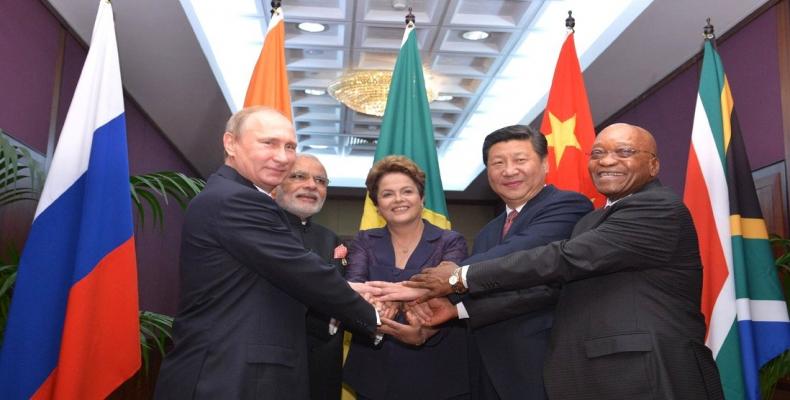Shanghai, July 21 (RHC)-- Officials from the world's largest emerging nations launched the New Development Bank (NDB) on Tuesday, the second of two new policy banks heavily backed by Beijing that are being pitched as alternatives to existing institutions such as the World Bank.
Also known as the BRICS bank, it follows soon after the establishment of the China-led Asian Investment Infrastructure Bank (AIIB). The new bank will fund infrastructure and development projects in BRICS countries - Brazil, Russia, India, China and South Africa.
The ceremony on Tuesday concludes a lengthy wait since the NDB was first proposed in 2012. Disagreements over the bank's funding, management and headquarters had slowed its launch.
"Our objective is not to challenge the existing system as it is but to improve and complement the system in our own way," NDB President Kundapur Vaman Kamath said.
He added that after a meeting with the AIIB in Beijing, the NDB had decided to set up a "hotline" with the AIIB to discuss issues, and to forge closer ties between "new institutions coming together with a completely different approach."
The bank is considering raising funds by issuing a "substantial" amount of bonds in member markets to help mitigate costs arising from exchange rate fluctuations, he said.
Chinese Finance Minister Lou Jiwei said the NDB's support of infrastructure projects will help "ease long-running bottlenecks faced by emerging and developing countries, and help them speed up, adjust and upgrade economic development."
The ceremony, held in Shanghai where the NDB's headquarters are located, was relatively low-key in comparison to a June signing of the articles of agreement for the AIIB in Beijing, which was attended by delegates from 57 countries and President Xi Jinping.
The NDB will have an initial capital of $50 billion to be equally funded by the five members who will have equal voting rights. The capital will be expanded to $100 billion within the next couple of years.
The members will also establish a reserve currency pool worth over another $100 billion. China has pledged to contribute $41 billion, Brazil, India and Russia will each contribute $18 billion, while South Africa will contribute $5 billion.


